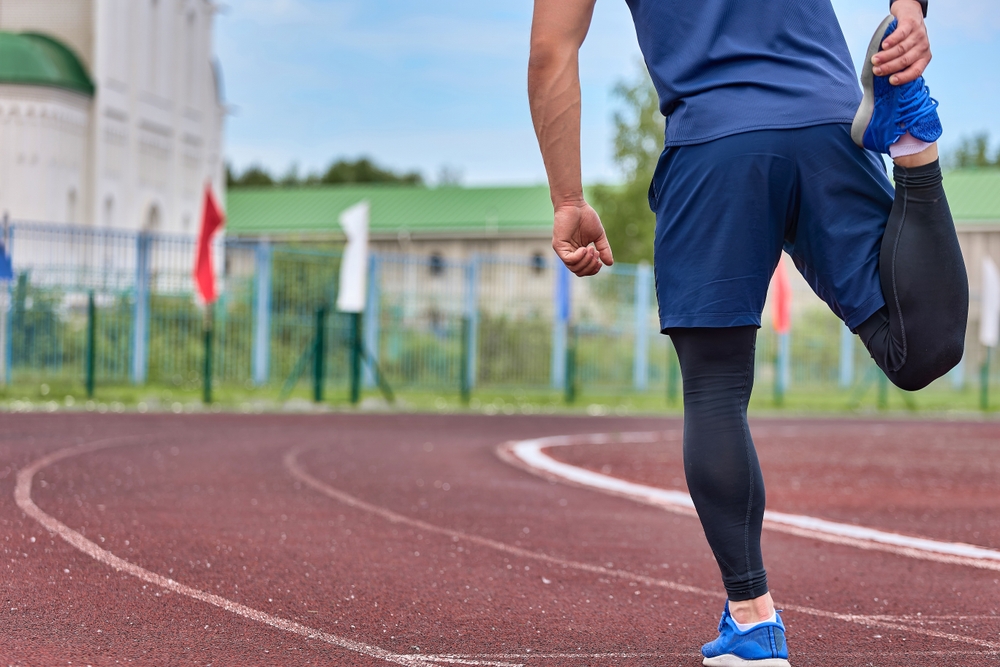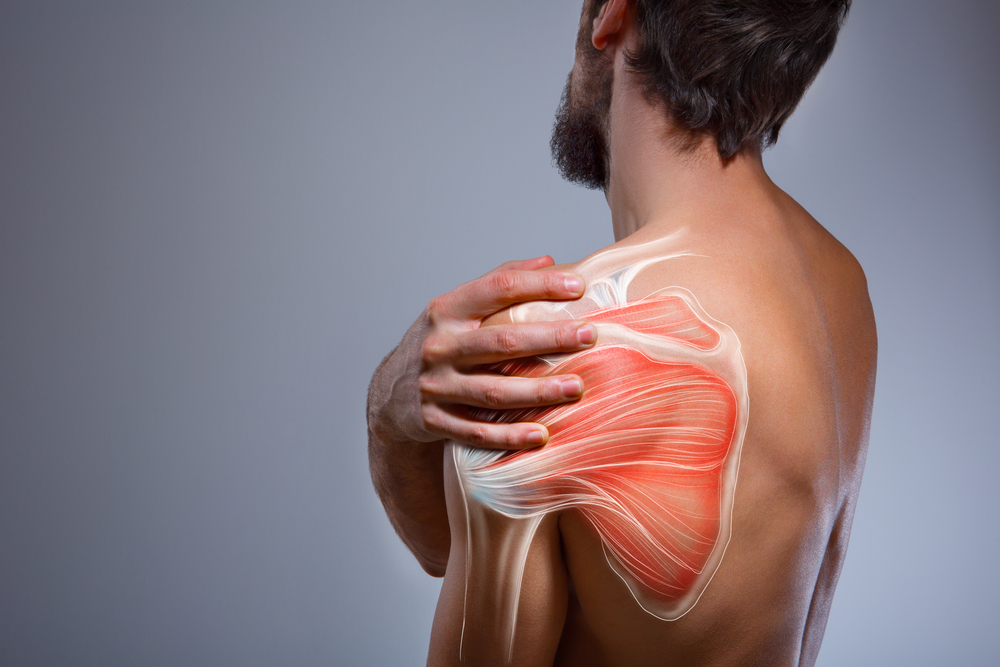While we sleep, our muscles relax and lose their tone. When we wake up, to regain that muscle tone and redistribute the fluids of the body, it is a healthy choice to stretch your limbs and body.
You open your eyes, then close them again to protect against the sudden and blinding light of morning. We rub them in consolation, let out a yawn, and starfish-stretch our limbs in opposite directions. At least, that’s what I do. You would be hard-pressed to find any person who can get up and immediately be physically ready for the day, or even weirder yet, doesn’t stretch their body at all!
So, let’s look at two things, why do we stretch our bodies when we wake up, and is stretching actually important?
Why Do We Stretch?
Ready. Steady. Go!
Most people associate stretching with sports or physical exertion. When you just read the phrase “Ready. Steady. Go!”, you likely pictured runners or swimmers limbering up or shaking out their bodies before the pistol starts the race.

That being said, stretching is more than just a precursor to sports. While stretching does enhance physical performance (e.g., athletes limbering up before a race), it’s important to note that stretching, in general, and in any setting, is a good thing. David Nolan, a physical therapist at Massachusetts General Hospital, agrees with this notion. In an article published by Harvard Health Publishing, Nolan proposed that stretching needs to be a regular activity that everyone should do daily.
Also Read: Why Do You Warm Up Your Muscles Before Exercise?
What Effect Does Stretching Have On The Body?
From the cardiovascular system to the nervous system, stretching helps us in many different ways. For instance, imagine that you’ve been sitting at your desk all day, staring at your computer for hours at a time. Maybe you’re a writer who happens to be writing about stretching. After a few hours of this activity, you’ll notice stiffness in your shoulders and at other joints in your body. Research indicates that this is rather common in individuals that spend more than 75% of their time sitting and working.

In such instances, doctors advocate that even stretching for as little as 3 minutes per hour of continuous sitting or standing can help counter everyday fatigue and aches.
How Does This Relate To Sleep And Stretching?
Now we come full circle, because what is sleep if not a period of continuous inactivity? On average, humans sleep for eight hours per night. During this time, muscles lose their natural tension or “tone” that they otherwise maintain in their relaxed state. Similarly, when we sleep, our bodies continually lose water, mainly through breathing out water and sweating, and our muscles are the first organs to lose that water. This loss of tone, along with dehydration, is what makes us wake up feeling stiff.
This is why we default to stretching when we wake up. Stretching helps us regain muscle tone and relieve us of that feeling of stiffness. This phenomenon of stretching when we wake up is referred to as pandiculation, and it isn’t just common to humans, but other mammals as well.
Oooh, Big Stretch!
Think of dogs and cats and their spectacular renditions of the downward dog stretch every time they wake up from a nap. Even animals resort to pandiculation to limber up their soft muscles before they engage in any type of active movement.

Also Read: Why Does Sleep Deprivation Cause Body Aches?
Don’t We Yawn Before We Stretch Sometimes?
Now, let’s talk about yawning for a moment. We seem to yawn every time we wake up; it is one of the most innate behaviors we do, and it’s basically a stretch for the muscles of the mouth! This means that yawning isn’t separate from pandiculation, but is actually a sub-process of pandiculation.
Big Brain Move
Pandiculation doesn’t just help our muscles; it helps our brains as well. Pandiculating our muscles as soon as we wake up triggers our central nervous systems into action. It literally drives us into a state of arousal.
Furthermore, pandiculation has also been linked to stress relief. It seems silly that the first thing you need when you wake up is a healthy dose of stress relief, yet that might actually be exactly what we need. Pandiculation gives us the best chance to ensure that the start to our day is a good and well-prepared one, as opposed to a lazy and drowsy one.
Also Read: Do We Only Yawn When We’re Sleepy?
A Final Word
Pandiculation, and stretching in general, is an important and vital process of the body. It boosts blood circulation, restores muscle tone, and gives us the best chance to have a good and productive day. So, tomorrow when you get up and inevitably starfish-stretch all over your bed, don’t feel bad! You’re just making sure that you’re fully prepared to start your day strong!
How well do you understand the article above!

References (click to expand)
- The importance of stretching. Harvard University
- Why do we stretch when we wake up?. BBC Science Focus
- LV Kallings. (2021) Workplace sitting is associated with self-reported general .... United States National Library of Medicine
- Bertolucci, L. F. (2011, July). Pandiculation: Nature's way of maintaining the functional integrity of the myofascial system?. Journal of Bodywork and Movement Therapies. Elsevier BV.
- Lorenzo, Serra-Prat, & Yébenes. (2019, August 9). The Role of Water Homeostasis in Muscle Function and Frailty: A Review. Nutrients. MDPI AG.
- Lorenzo, Serra-Prat, & Yébenes. (2019, August 9). The Role of Water Homeostasis in Muscle Function and Frailty: A Review. Nutrients. MDPI AG.
